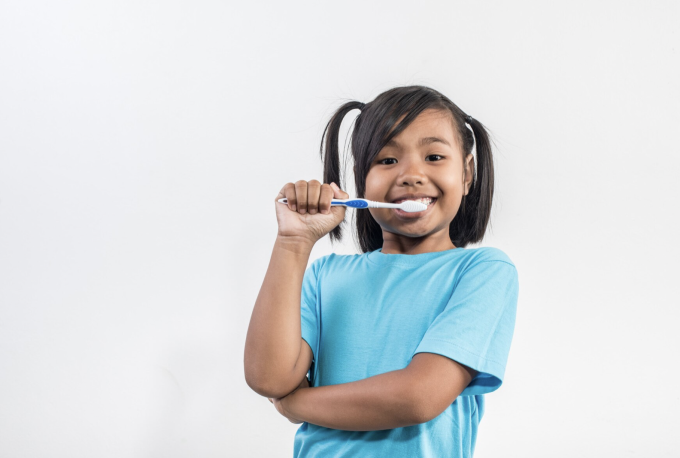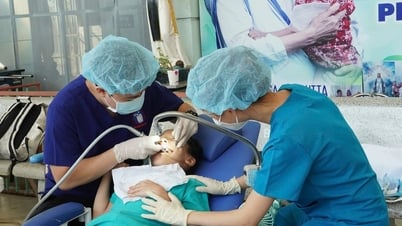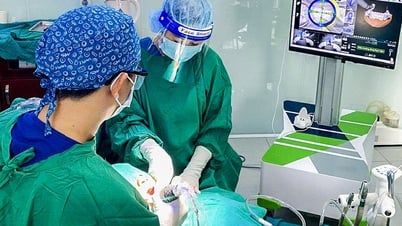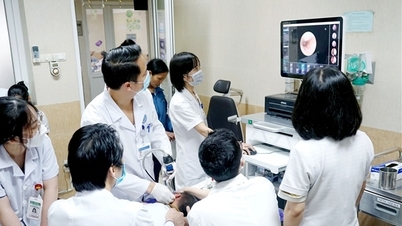Encourage your child to brush their teeth regularly, reduce their intake of sweets, and have regular dental check-ups to prevent bacteria from eroding and causing tooth decay.
Tooth decay occurs when tooth structure is destroyed and can affect the enamel (the outer coating of the tooth). Debris from carbohydrate-containing foods such as bread, cereal, milk, soda, fruit, cakes, and sweets that remain on the teeth create an environment for bacteria to grow.
Bacteria feed on sugar and produce acids that eat away at tooth structure by depleting calcium. They also create plaque – a yellow film that builds up and eats away at tooth enamel, creating holes in teeth.
Tooth decay is common in young children, affecting about 42% of children between the ages of 2 and 11, according to the National Institute of Dental and Maxillofacial Research. Here are some ways to help prevent tooth decay in young children.
Clean teeth
Children should keep their teeth clean by brushing, flossing, and rinsing regularly to remove food debris, bacteria, and plaque. Prioritize dental care products containing fluoride to restore calcium to decayed teeth and limit the production of corrosive acids.
When your baby starts teething, you can use a baby wipe or toothbrush to clean them. At this age, a special toothpaste for babies is preferred.

Children who keep their teeth clean are less likely to have tooth decay. Photo: Freepik
Reduce sugar consumption
Limiting sugar helps eliminate bacteria that damage tooth enamel and helps prevent cavities. Children need to reduce both the frequency and total amount of sugar they consume.
In addition to fruit juice and candy, carbohydrate-rich foods such as cookies, cereals, and sticky foods such as dried fruits and gummy candies can also promote tooth decay. If your child eats these foods, parents should remind their child to brush their teeth afterward.
Avoid sugary drinks at night
Tooth decay in young children is often caused by drinking formula or sugary juice at night, allowing sugar to stay on the tooth surface for 10-12 hours. Water or some herbal teas suitable for children are healthier options for oral health.
Avoid sharing toothbrushes
Avoid letting children share utensils or toothbrushes with people who have dental problems. Parents or relatives should use antibacterial mouthwash to reduce the spread of disease.
Regular dental check-ups
The American Academy of Pediatrics (AAP) recommends that parents take their children to the dentist at least twice a year. Children with a high risk of tooth decay or poor oral hygiene may need more frequent dental visits.
Bao Bao (According to Parents )
| Readers ask questions about children's diseases here for doctors to answer |
Source link



![[Photo] National Assembly Chairman Tran Thanh Man chairs the 8th Conference of full-time National Assembly deputies](https://vphoto.vietnam.vn/thumb/1200x675/vietnam/resource/IMAGE/2025/9/29/2c21459bc38d44ffaacd679ab9a0477c)
![[Photo] Many streets in Hanoi were flooded due to the effects of storm Bualoi](https://vphoto.vietnam.vn/thumb/1200x675/vietnam/resource/IMAGE/2025/9/29/18b658aa0fa2495c927ade4bbe0096df)
![[Photo] General Secretary To Lam receives US Ambassador to Vietnam Marc Knapper](https://vphoto.vietnam.vn/thumb/1200x675/vietnam/resource/IMAGE/2025/9/29/c8fd0761aa184da7814aee57d87c49b3)
![[Photo] General Secretary To Lam attends the ceremony to celebrate the 80th anniversary of the post and telecommunications sector and the 66th anniversary of the science and technology sector.](https://vphoto.vietnam.vn/thumb/1200x675/vietnam/resource/IMAGE/2025/9/29/8e86b39b8fe44121a2b14a031f4cef46)
![[Photo] General Secretary To Lam chairs the meeting of the Central Steering Committee on preventing and combating corruption, waste and negativity](https://vphoto.vietnam.vn/thumb/1200x675/vietnam/resource/IMAGE/2025/9/29/fb2a8712315d4213a16322588c57b975)

















































































![[Infographics] Time, location, content of the 1st Congress of An Giang Provincial Party Committee, term 2025 - 2030](https://vphoto.vietnam.vn/thumb/402x226/vietnam/resource/IMAGE/2025/9/30/fed466586ad84c3ebea914be993018ca)













Comment (0)